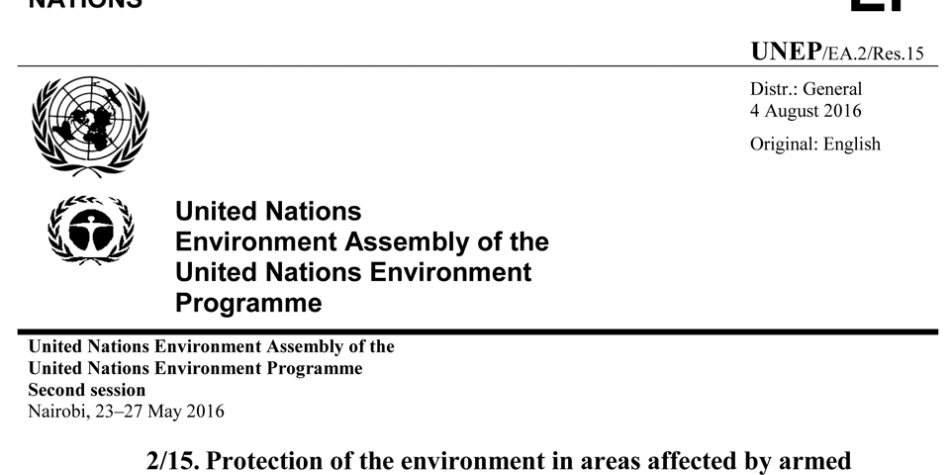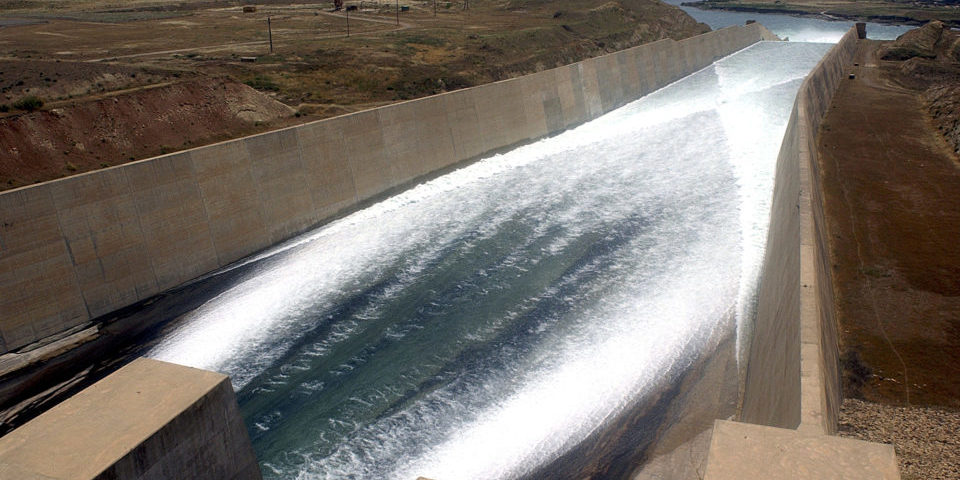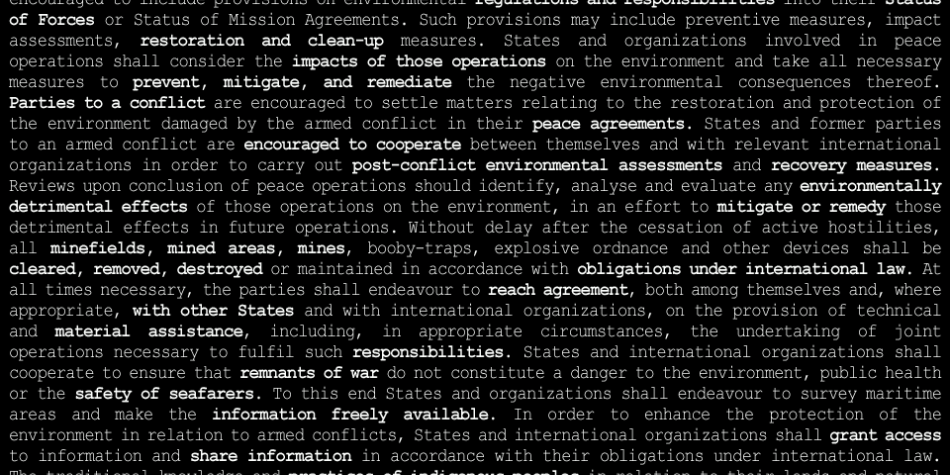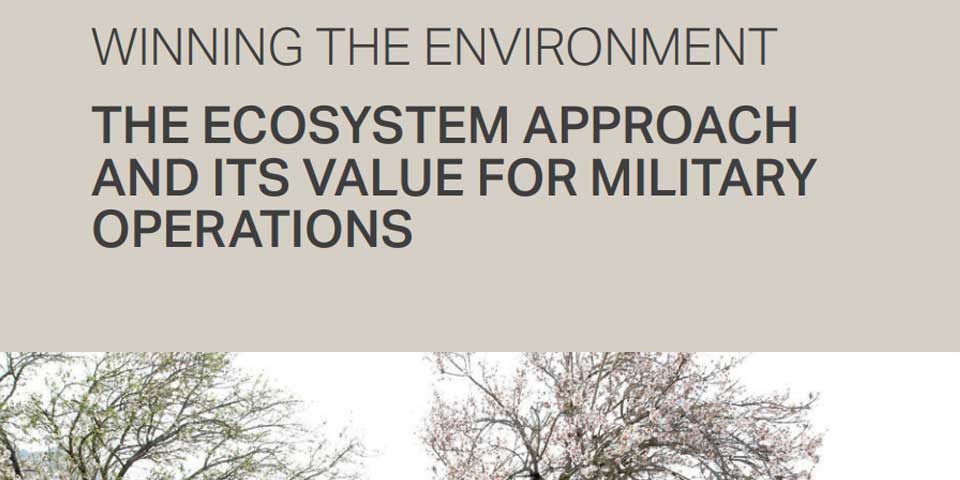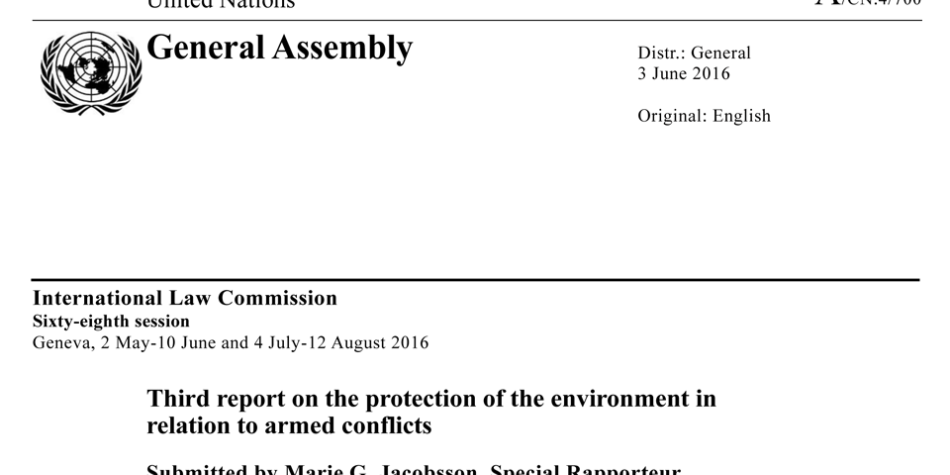UNEA-2 | Resolution: Protection of the environment in areas affected by armed conflict
This UN Environment Assembly resolution helped reaffirm UN Environment’s mandate to work on conflicts and was a sign of the growing international interest in addressing the environmental dimensions of armed conflicts.

